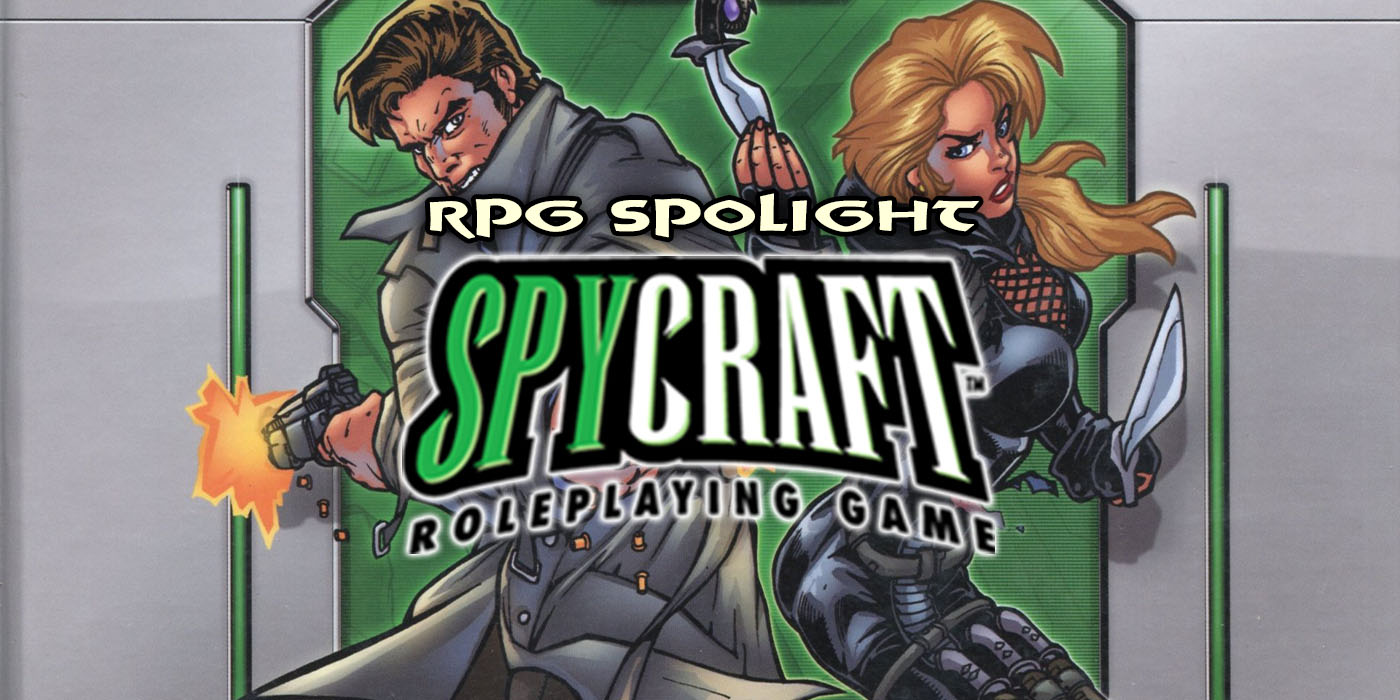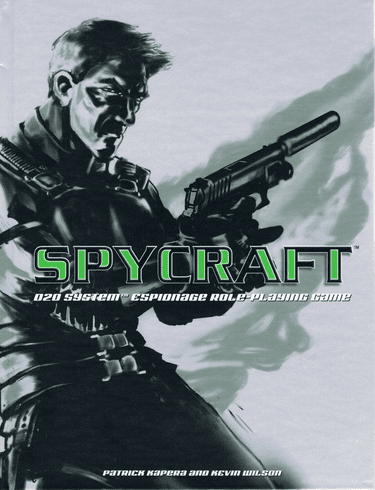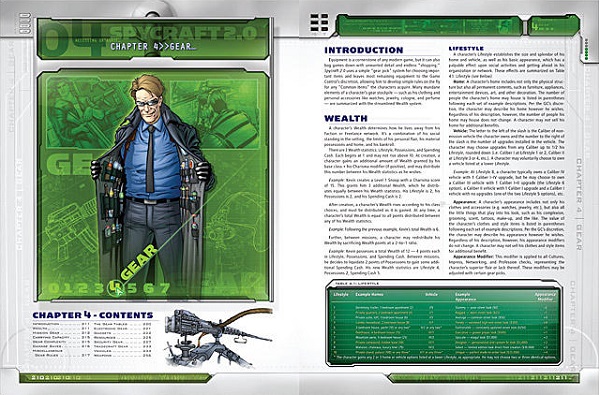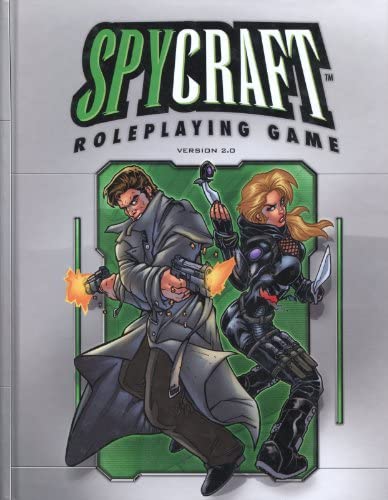Spycraft: RPG Spotlight

Whether you’re partial to the shoe phone, the pen camera, or high speed car chases in an armored sports, there is a super spy movie for you to jump into with Spycraft.
Published by Alderac Entertainment Group in 2002, Spycraft was originally conceptualized as a mixture of classic superspy and supernatural or paranormal genres. Tropes such as global shadow organizations, psychic powers, and super espionage mixed together for sessions that could play like a James Bond film or James Bond with pseudo magic powers. Eventually the combination of genres was split into two separate but related games, Spycraft Classic which focused on the classic spycraft aspects of the game, a well as Shadowforce Archer, which leaned more into the superspies vs the paranormal concept.
The Spycraft games use a d20 system with a few changes to the core mechanics to make the game feel more centered around spy work and less around high fantasy. Races were changed to Departments, boots to defense and initiative grew with a character’s level, and contemporary skills such as computers helped bring the usual feel of a d20 game to the modern era.
The vitality and wound point system implemented by the Wizards of the Coast Star Wars RPG helped the action-adventure danger feel more grounded and threatening. Additionally, high-speed chases, gear, and “Action Dice”- used to activate critical successes or failures – kept Spycraft feeling like the sort of popcorn thriller you’d see in theaters.
Shadowforce Archer takes a slightly different approach, adding magic and psychic powers to the regular Spycraft universe with a series of supplemental books all focusing on the paranormal in various parts of the world. A little Paranoia or Lovecraft inspired, and a little Men In Black with mystical powers in stead of aliens, it’s a fun take on the genre with well combined tropes and setting elements.
While Spycraft may not be a game you’ve played or one that saw a ton of commercial success, it has been recognized a number of times with numerous awards and nominations from ENnie, Outie, Pen & Paper, Grog d’Or, and Diana Jones between the years of 2002 and 2006. And though many of the supplements and settings have been released exclusively in PDF form, there has been a steady demand for them and quite a few have come out since the game’s inception.
It’s an enjoyable game played in a versatile setting with a few unique twists and turns and a gameplay system that most of us are at least passingly familiar with. By all accounts, Spycraft is a tabletop RPG that most people would have a great time playing.
If you’d like to check out Spycraft for yourself, you can find more information on the Crafty Games official website here or the Crafy Games DriveThru RPG store here.
Have you played Spycraft? What kind of super spy have you or would you make? What aspects of the super spy genre are your favorites and which tropes would you be sure to bring over into your own spy based RPG campaign? Let us know in the comments!
Happy Adventuring!








